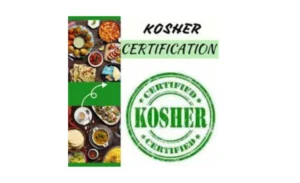Understanding Kosher Certification: What It Means and Why It Matters

Kosher Certificate
In today’s food industry, certifications are essential for building consumer trust. One of the most recognized certifications is the Kosher Certificate. While it’s often associated with Jewish dietary laws, kosher certification is important to many consumers seeking quality, transparency, and ethical standards in food production.
Let’s explore what a kosher certificate is and why it matters to both consumers and businesses.
What Is a Kosher Certificate?
A kosher certificate ensures that a food product follows Jewish dietary laws, known as kashrut. These rules outline what foods can be eaten, how they should be prepared, and how they must be handled during production.
For instance, kosher laws prohibit certain foods like pork and shellfish. They also require meat and dairy to be kept separate. Kosher certification also extends to food production processes. This includes the ingredients used, the cleanliness of equipment, and the overall production environment.
Who Issues Kosher Certifications?
Kosher certification comes from agencies specializing in both Jewish dietary laws and food safety. These organizations employ rabbis and inspectors who ensure every aspect of production meets kosher standards.
Some of the most well-known kosher certification agencies include the Orthodox Union (OU), Star-K, OK Kosher, and Kof-K. Once a product passes inspection, it receives a hechsher, which is a symbol confirming its kosher status.
How Does the Certification Process Work?
The kosher certificate process is thorough and typically follows these steps:
-
Application: The company submits detailed information about its products and production processes.
-
Inspection: A kosher inspector visits the production facility to ensure it meets the kosher standards.
-
Adjustments: If necessary, the company adjusts its processes or ingredients to align with kosher laws.
-
Approval: After the product passes inspection, the agency grants the kosher certificate.
-
Ongoing Inspections: Regular checks ensure that the company continues to meet kosher standards over time.
This ensures the product remains consistent and reliable.
Why Kosher Certification Is Valuable for Businesses
Kosher certificate is not just for Jewish consumers. It appeals to a broader audience. Many people today associate kosher products with quality, cleanliness, and ethical sourcing.
Vegetarians, vegans, and individuals with specific dietary needs often prefer kosher-certified products because they guarantee careful ingredient sourcing and food handling. Moreover, companies with kosher certification gain access to a larger market. It can also open doors for exporting to countries where kosher foods are in high demand, like the U.S., Israel, and parts of Europe.
Final Thoughts
A Kosher Certificate is more than just a religious symbol. It represents trust, quality, and transparency in food production. For consumers, it provides assurance that products meet high standards. For businesses, it helps build credibility and open up new opportunities.
Whether you’re a consumer or a business owner, understanding the importance of kosher certification can benefit everyone involved.

